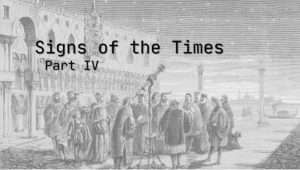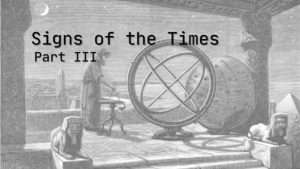Introduction
“Quis est homo, si non facit mundum meliorem” when translated from Latin says, “What man is a man, if he does not make the world better”. Seems to me a valid and sobering question, because it poses, actually, it lays a challenge at the feet of those who hear it. The challenge to make the world better than how it was found by you, and those in the generation to which you belong.
Better Than You Found It
We have all heard it said when borrowing a toy from a sibling, or perhaps the neighbors lawn mower when your own has fallen into disrepair: “Return it in or better than the condition in which it was given”, or “leave the room better than you found it for those next to use it”. For it is not merely a matter of treating things (or people, as the case may be) with middling respect, but it confers ownership and responsibility to go above and beyond the call of duty or what is expected.
And should any members of the fairer sex believe themselves off the hook because the word “man” was used, I assure you, the gauntlet has been thrown, and it cares not as to which of the sexes you belong. To leave the world in a better state than we found it is not a once off proposition, it’s a task given to every generation that, should they succeed in their part, it will make the labor a little easier for every generation hence.
It is not something to be taken lightly or glibly; something to be left for a time when “I am older and have had my fun abroad, and can devote attention to it”. Or, have it left to those “with a better temperament than my own, and who are already in the fight. Leave it to them, I’ll come around to it.” No, it is a now challenge, because there are those on the flip side of that coin who only seek to make their lives better while in this world, often at the expense of everything and everyone around them.
Such people are known to everyone who breathes (for all one needs to do is pick a rock and throw it across the street and you are likely to hit one), as it seems the attitude that creates this sort of person has multiplied in the preceding decades. The advent of the internet and social media has only served to exacerbate this problem as opposed to abate it. Add to the mixture various world leaders and politicians making promises of “free this” and “free that”, if one were to only cast a vote in their direction. It seems little wonder, then, the state of affairs in which we find ourselves in the world; and one would be hard pressed to believe any of it has been for the better.
The challenge is laid out in two parts, and I will attempt to present them as best I can. The first, it would seem, is “what man is a man”.
At first glance, it appears as some kind of appeal to a notion of masculinity held by few in our ‘Gloriously Modern Age (GMA)’. Such things as “being a man” are called into question at every corner of the frayed cultural fabric, that it’s a wonder it hasn’t come unraveled. But if we can harken back to yesteryear when the notion of being a man was more concrete (in my mind this has not changed, but my hold over the popular notions of the masses is dubious at best), we get a glimpse of that to which this saying eludes.
Only a century ago, being a man meant that you knew a trade or a skill through which you made a name for yourself, and utilized it as a means to provide for your family. There were expectations on your conduct when it came to your treatment of your wife and children, and stigmas if you neglected those expectations: to provide, protect, and to ensure your family was loved, and could walk down the street with dignity and a sense of [demure] pride.
Such men did not cower and hide behind their mother’s apron strings when challenges of all sorts (economic depression, global conflicts, etc.) came calling. Indeed, during the second World War, such was this collective attitude amongst men: “I can’t but do my part. If I don’t, who will?”, that a great many who could not answer the call, for one reason or another, felt a deep sense of shame. Such was their conviction and sense of duty.
The “knock on effect” for men such as these, who took a hold of what they considered their moral and sacred duty, led straight into the second part of that challenge: to “make the world better.” But what does this mean?
The definition of better is: “Of a more excellent or effective type or quality”. It might also aptly be characterized by, “that which is superior, higher, enduring”, or as the Apostle Paul said, “whatever is true, whatever is honorable, whatever is just, whatever is pure, whatever is lovely, whatever is commendable, if there is any excellence, or is worthy of praise…”. (Philippians 4:8) Thus is the measuring stick for how one might know the world has been bettered: if it is found in a more just, pure, lovely, excellent state by those who come after us, and it endures to those who come after them.
Sadly, in our GMA, too many generations of men and women (I said this challenge cares not for your sex) have neglected the call to leave this world in a better state than that in which they found it. As such, it has seemed with each subsequent generation, that the degradation and depravity has only grown to the point that, in our GMA: men and women believe they can be the opposite merely by thinking and saying it; sexuality is rampant in every area of culture and education, and; the number of innocent children murdered in the womb between 1973 and 2021 rivals those deaths from WWII, and a third of the lower estimates for the number of people killed in all the wars of the 20th century.
[To clarify, close to 64 million babies have been murdered in the womb, and the estimates for total deaths from war in the 20th century range from 187-231 million people.]
The saying goes, “Hard times create strong men. Strong men create good times. Good times create weak men. Weak men create hard times.” If you have any curiosity as to where in that cycle we fall in our GMA, we are in the hard times created by weak men. Now, this weakness is not solely in a physical sense, but it is a diagnosis of the men as a whole. It speaks to their moral character, their endurance, lack of self-control and discipline, and the inability to consider anyone beyond themselves. They use the opposite sex for their own gratification and then tell her to “take care of it” should it result in a pregnancy.
Such men are the antithesis to that which the Latin saying calls them to be. They do not consider leaving the world better than when they entered it, as they only wish to have their fun, and go through life without much fuss at all.
If you’re like me, I should hope you do not wish to be counted among these men (and women). I should rather like to be counted among those who said, “I can’t but do my part. Because if I don’t, who will?”. Such men and women fight as though there is no other choice, because there isn’t. They do not put it off or leave it for another, because their attitude is: no one else is coming.
I leave you with a bit of a warning and an encouragement to be courageous, from the cousin of a queen, and a snippet of dialogue between a trepidatious hobbit and a lovable wizard:
“For if you remain silent at this time, relief and deliverance for the Jews will arise from another place, but you and your father’s family will perish. And who knows but that you have come to your royal position for such a time as this?” -Esther 4:14
Frodo: “I wish the Ring had never come to me. I wish none of this had happened.”
Gandalf: “So do all who live to see such times, but that is not for them to decide. All we have to decide is what to do with the time that is given to us.”
― J.R.R. Tolkien, The Lord of the Rings: The Fellowship of the Ring





